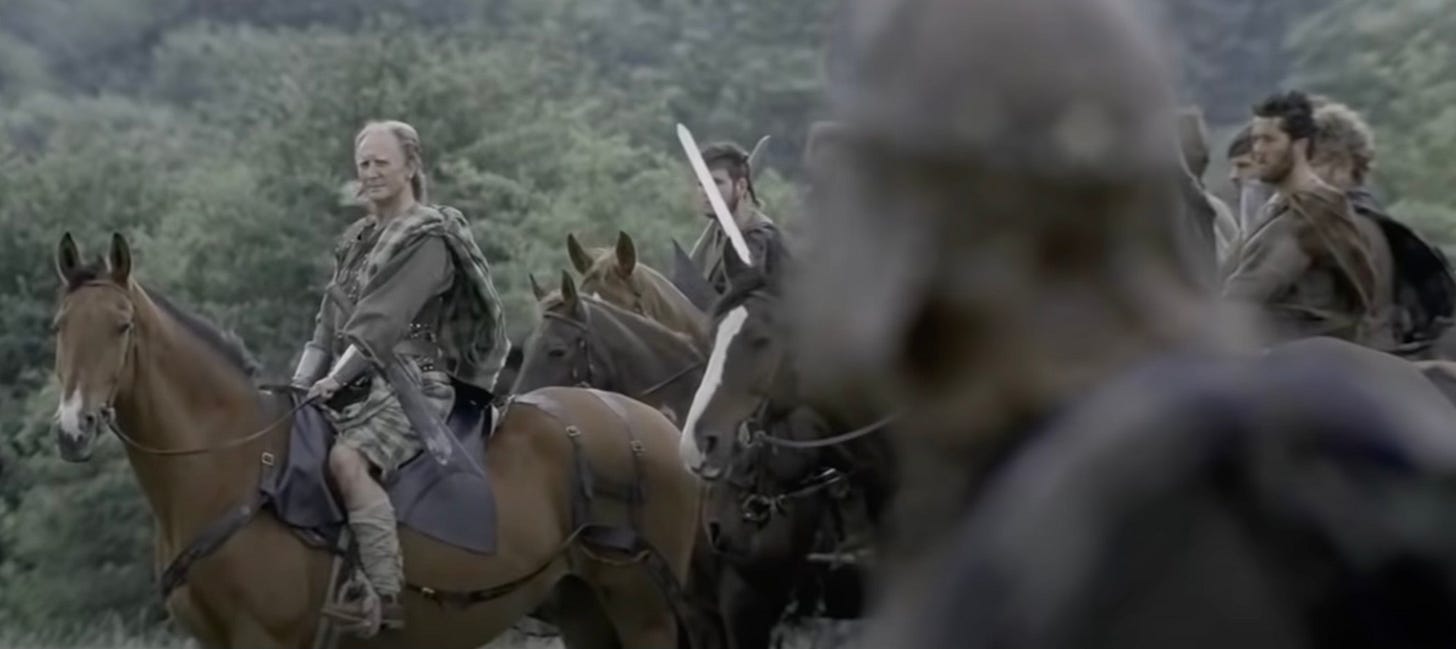Dear Friends,
I’ve gotten in the habit recently of, for no incredibly-obvious-reason, picking fights with perfectly pleasant people and then having to walk it back slightly when they reveal themselves to be class acts. That was the case for Substack writing guru
and, more recently, literary critic . (I think I was also trying to pick a fight with Renaissance scholar , but Werlin is a particularly hard person to get aggrieved with.)Rothfeld very graciously initiated a dialogue, which is now up on
’s new Substack and on The Point’s website. This is very exciting for me, both as a chance for me to make my case on the literary value of Substack and also because it’s my belief that ‘mainstream’ publications have been criminally neglecting the Substack ecosystem, and it’s great to see The Point — which really is one of my favorite magazines — taking seriously the energy that Substack represents.My position in the Rothfeld exchange is to try to be, like, a William Wallace of sad writers and argue that Substack isn’t just a ‘blog’ or auxiliary to the literary world, that Substack is where at it’s at, and that it gives writers the kind of freedom and autonomy that, up until you win the Nobel Prize or something, is all-but-impossible to obtain in the ‘establishment’ writing world. In this conception, Becca is, of course, The Bruce. She’s already had a very nice establishment career, but is clearly interested in the Substack space — maybe even more so than she currently realizes! — and my claim is that writers like her will find themselves ever more liberated the further they cross into the high grasses and craggy glens of the Substack Highlands.
Becca’s position is, as best as I can tell, entirely free of Braveheart allusions. She feels that there’s a good thing going on in the legacy media — between editing, fact checking, community spirit, institutional stability, etc — and that the influencer/algorithmic era, of which Substack is a part, offers a kind of shiny gold distraction from meticulously-developed editorial standards. (I think that’s a fair paraphrase.)
This was an interesting exchange for me and I really appreciate being asked to participate in it.
The Point — much like the Lairds splitting the difference at the Battle of Falkirk — have posted Part One on their Substack and Parts Two and Three on their website.
In other far-fetched metaphors, the aforementioned Julianne Werlin, like Samwell Tarly venturing far north of the wall, brings her analysis of Randall Collins’ The Sociology of Philosophies out of the somewhat under-trafficked Duke University English department and to
.Best,
Sam






An enjoyable aside this afternoon. I need to read more of "The Point" series, but my sense of the earlier exchange is that Becca sees little gold emerging from Substack. I'm somewhere in the middle, I think, because I do see some worthwhile relationships and content flourishing here. But it seems very difficult to ignore the tripe that often does very well by the financial and engagement metrics Substack most prizes. So it's all well and good to cry "freedom," but that gets drowned out too often amidst the other noise. I think Becca (and I) would like to see more of the cream rise.
I read and enjoyed the three part exchange but was indeed disappointed that the debate was not conducted in the patois of Braveheart. Not one cry of "Freedom" from you, Sam!
I think the biggest difference between the two views is on the sense of community. Through comments, IRL get togethers, and zooms, many of us have formed a real community. I can't compare that community to working at a magazine or at a newspaper but in my Substack community I feel a real sense of friendship.
As for the writing, as you pointed out a few times, the comments we receive make a huge difference to the writing experience.